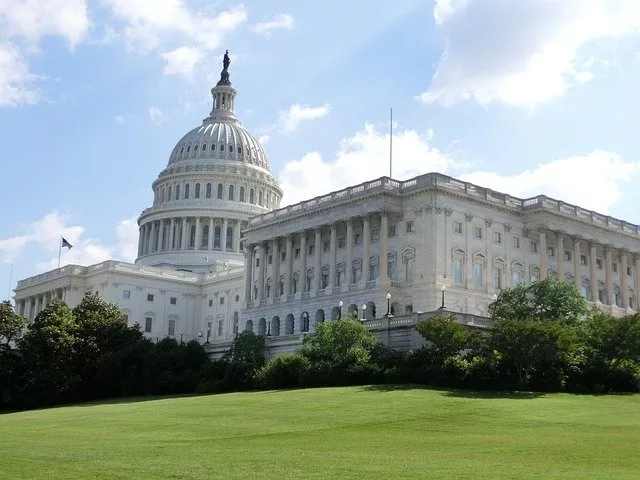With control of the Senate still hanging in the balance, it’s difficult to know how the health care policy landscape will look in 2021 and beyond.
It all comes down to the Georgia Senate runoff races in January. If Republicans win at least one of the two seats up for grabs, they will retain the Senate majority. And if that happens, President-elect Joe Biden, a Democrat, can likely say goodbye to many of the health care policy changes on which he campaigned.
“Most of what the Biden administration has put out there as their health policies prior to the election were actions that really relied on having Democratic control of all three branches of government,” said Caroline Bye, associate vice president of client services at Morning Consult. “The public option is honestly one of the biggest promises of his campaign …, and I don’t see that happening.”
Bye made those comments during a recent virtual town hall put on by the National Council for Behavioral Health. She was one of four panelists to provide insights into what health policy will look like under the new administration, among other topics.
All of those speakers seemed to agree: Regardless of what happens in Georgia, the behavioral health industry could see more funding and improved access in the year ahead.
“We have opportunities to incrementally see improvements,” said Chuck Ingoglia, president and CEO of the National Council. “The outcome in Georgia …[will determine if] we have bigger opportunities.”
One way those incremental opportunities will present themselves is through executive orders on fringe issues. Take enrollment efforts around the Affordable Care Act (ACA), for example.
While the Trump administration has scaled back investments in ACA enrollment and outreach, Biden is expected to ramp those efforts back up. That’s one issue on which Brianna Ehley, a health care reporter at POLITICO, anticipates seeing an executive order.
“The Biden administration will want to support and bolster the Affordable Care Act in any way that they can,” Ehley said. “That is one really quick, easy thing that they would be doing right away.”
Getting people enrolled in the ACA is important because it provides more Americans with guaranteed access to behavioral health services, as mental health and addiction are among the 10 essential health benefits covered by the ACA.
“That’s of huge importance,” Ingoglia said. “Here we are, 12 years after the federal parity law was created, and we’re still struggling for it to have its full impact so that people who have private insurance and experience a mental health or substance use challenge can get the level of care that they need easily and quickly.”
Meanwhile, Bye said she expects to see Biden use regulatory authority to shape drug pricing policy within Medicare.
In addition to executive orders, which don’t require support from other branches of government, the behavioral health industry could also see positive changes ushered in as a result of bipartisan legislation.
After all, behavioral health isn’t a partisan issue, and lawmakers have already been working together on initiatives to address it in light of the pandemic.
Earlier this week, the Senate passed the Crisis Stabilization and Community Reentry Act, which would set aside $10 million in grants to help fund collaborative programs between criminal justice agencies and community mental health centers. Plus, the House of Representatives recently passed several bills designed to increase access to opioid use disorder (OUD) treatment.
Another issue that’s garnered support from lawmakers on both sides of the aisle is making telehealth flexibilities permanent for behavioral health treatment.
Meanwhile, voters of every affiliation want to see increased federal attention and funding for behavioral health and substance use disorder (SUD) providers.
According to a recent Morning Consult poll conducted for the National Council, 57% of voters say the nation is on the wrong track when it comes to addressing behavioral health issues amid COVID. That belief was expressed by 62% of Democratic voters and 46% of Republicans.
On top of that, the market research company found that an even larger swath of people back the idea of putting more money toward behavioral health initiatives.
“There is a strong bipartisan majority of voters who support increasing funding for mental health and addiction recovery treatment,” Bye said. “In our poll, we asked whether or not increasing funding for mental health and addiction recovery treatment should be a top priority for Congress. We see that 84% of voters believe that this funding should be a top priority for Congress.”
That includes 91% of Democrats and 80% of Republicans, according to poll data.
If voters on both sides of the aisle have their way, that bodes well for behavioral health providers in 2021 and beyond.
Companies featured in this article:
Morning Consult, National Council for Behavioral Health, Politico



